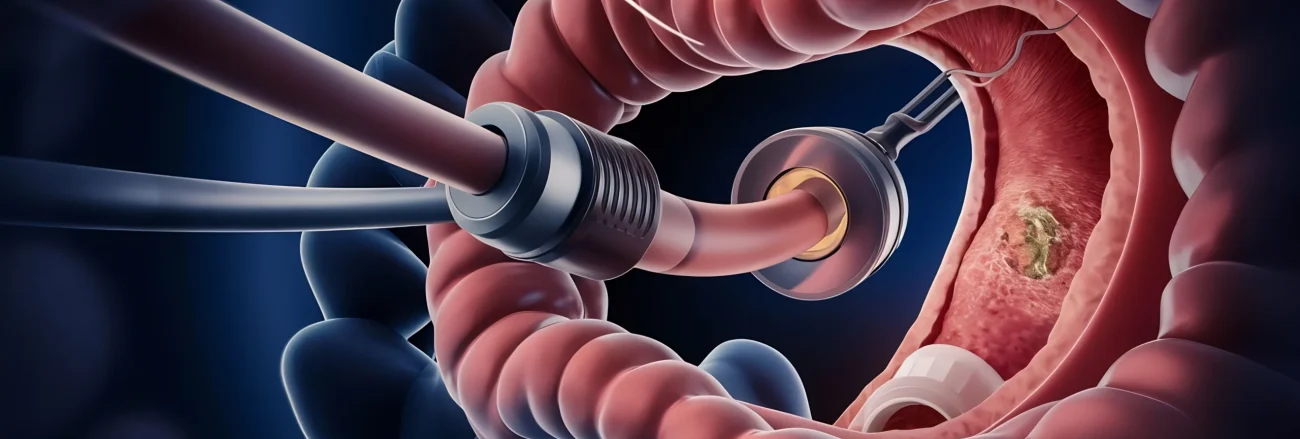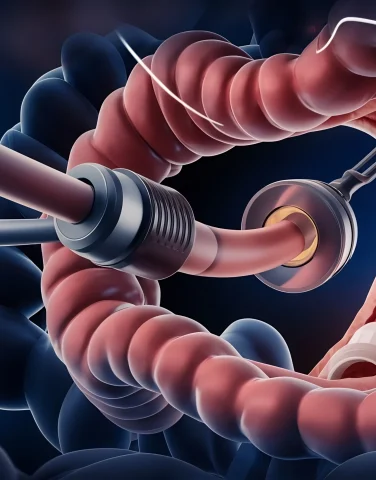At Digestive Health Services, we know that the word “colonoscopy” can make people feel a bit anxious. We get it. The preparation process isn’t anyone’s idea of a good time, and the idea of the procedure itself can be intimidating.
But what if we told you that this single exam is one of the most powerful and potentially life-saving steps you can take for your long-term health? It’s time to change the conversation around colonoscopies from one of dread to one of empowerment.
Let’s break down why this procedure is so crucial.
It’s Not Just a Test; It’s Prevention in Its Purest Form
Many medical tests are designed to find a disease. A colonoscopy is unique because it’s designed to prevent one. Colorectal cancer, which is the third most common cancer diagnosed in both men and women in the United States, almost always starts as a small, benign growth called a polyp.
Here’s the critical part: most polyps cause no symptoms. You could have one and feel perfectly fine for years, until it eventually turns into cancer. A colonoscopy allows your gastroenterologist to:
- Find these polyps.
- Remove them during the very same procedure.
This means we can stop cancer before it even starts. Think of it as getting a mole removed before it can become skin cancer. By the time symptoms like rectal bleeding, persistent abdominal pain, or a change in bowel habits appear, the condition is often more advanced and complex to treat.
Early Detection Saves Lives
When colorectal cancer is found early, the 5-year survival rate is over 90%. This is a staggering and hopeful statistic. A colonoscopy is the gold standard for early detection, capable of finding cancer at its earliest, most treatable stages—often before it has spread.
Scheduling your routine screening colonoscopy isn’t just checking a box; it’s giving yourself the best possible chance for a full and healthy life if anything is found.
Who Needs a Colonoscopy and When?
The guidelines are clear, but you should always confirm the right timing for you with your gastroenterologist. Generally, average-risk adults should begin screening at age 45. If you have a family history of colorectal cancer or polyps, or have certain risk factors like inflammatory bowel disease (IBD), you may need to start earlier and be screened more frequently.
Addressing the Fear Factor: The Modern Colonoscopy Experience
We hear your concerns, and medicine has come a long way in making this procedure more comfortable than ever.
- The Prep: Yes, this is the part people dislike the most. However, prep formulas have improved and are often easier to tolerate. Remember, a clean colon is essential for your doctor to get a clear view. This is the most important step for a successful exam.
- The Procedure: You will be given sedation to make you comfortable and sleepy. Most patients do not remember the procedure at all. The entire exam itself typically takes only 30-60 minutes.
- The Recovery: You’ll spend a short time in recovery and will need someone to drive you home. Most people are back to their normal routine the very next day.
When you weigh one day of minor inconvenience against the potential of preventing cancer, the choice becomes clear.
Your Health is in Your Hands!
At Digestive Health Services, we see a colonoscopy as an act of self-care. It’s a proactive, powerful decision you make for your future well-being. It’s about taking control and gaining peace of mind, knowing you’ve done everything you can to protect your health.
Don’t let fear or hesitation stand in the way of your health. If you’re 45 or older, or have concerns about your risk factors, reach out to us, and we’ll be with you each step of the way.
Your future self will thank you.


